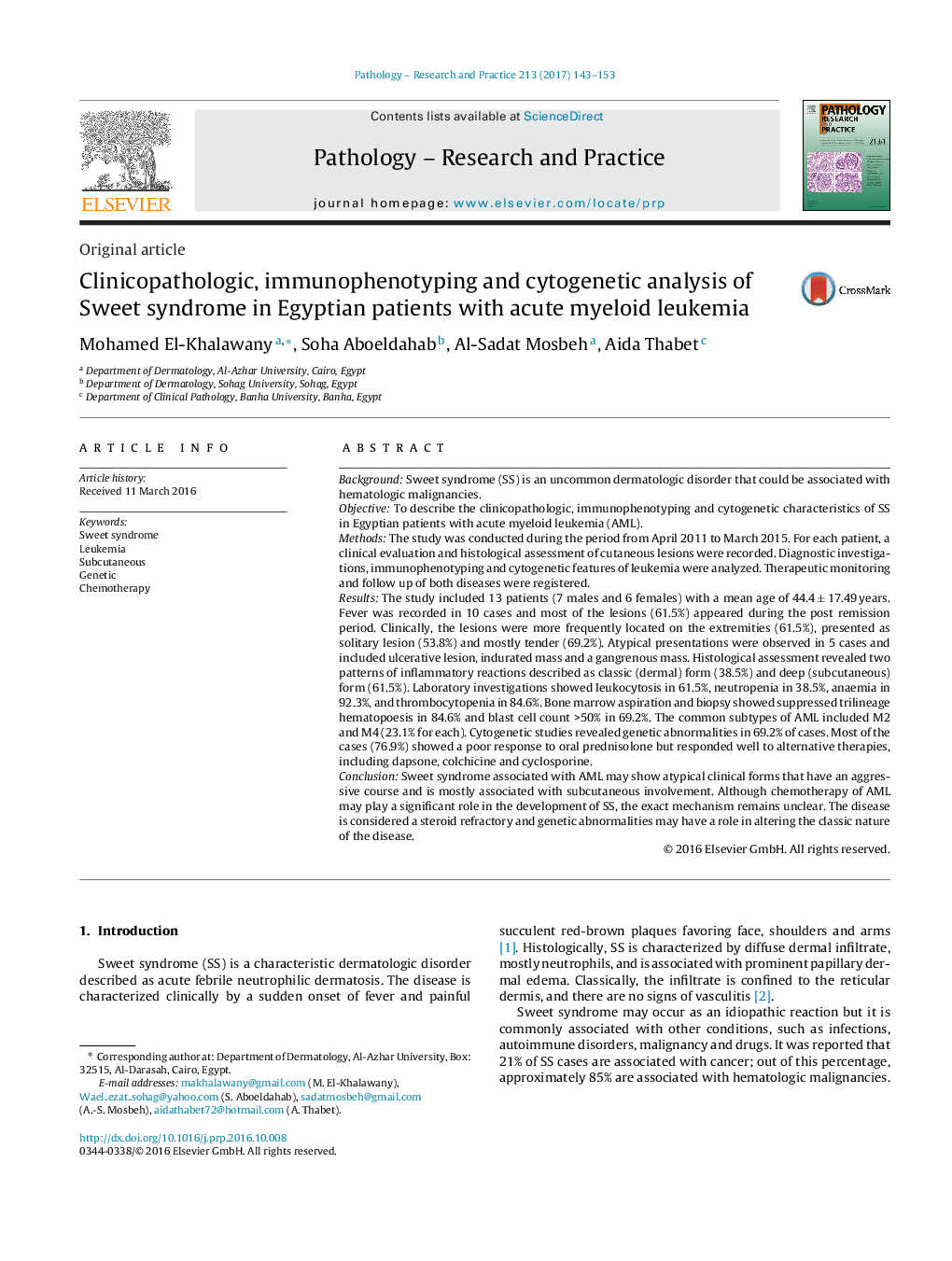| کد مقاله | کد نشریه | سال انتشار | مقاله انگلیسی | نسخه تمام متن |
|---|---|---|---|---|
| 5529379 | 1401695 | 2017 | 11 صفحه PDF | دانلود رایگان |
BackgroundSweet syndrome (SS) is an uncommon dermatologic disorder that could be associated with hematologic malignancies.ObjectiveTo describe the clinicopathologic, immunophenotyping and cytogenetic characteristics of SS in Egyptian patients with acute myeloid leukemia (AML).MethodsThe study was conducted during the period from April 2011 to March 2015. For each patient, a clinical evaluation and histological assessment of cutaneous lesions were recorded. Diagnostic investigations, immunophenotyping and cytogenetic features of leukemia were analyzed. Therapeutic monitoring and follow up of both diseases were registered.ResultsThe study included 13 patients (7 males and 6 females) with a mean age of 44.4 ± 17.49 years. Fever was recorded in 10 cases and most of the lesions (61.5%) appeared during the post remission period. Clinically, the lesions were more frequently located on the extremities (61.5%), presented as solitary lesion (53.8%) and mostly tender (69.2%). Atypical presentations were observed in 5 cases and included ulcerative lesion, indurated mass and a gangrenous mass. Histological assessment revealed two patterns of inflammatory reactions described as classic (dermal) form (38.5%) and deep (subcutaneous) form (61.5%). Laboratory investigations showed leukocytosis in 61.5%, neutropenia in 38.5%, anaemia in 92.3%, and thrombocytopenia in 84.6%. Bone marrow aspiration and biopsy showed suppressed trilineage hematopoesis in 84.6% and blast cell count >50% in 69.2%. The common subtypes of AML included M2 and M4 (23.1% for each). Cytogenetic studies revealed genetic abnormalities in 69.2% of cases. Most of the cases (76.9%) showed a poor response to oral prednisolone but responded well to alternative therapies, including dapsone, colchicine and cyclosporine.ConclusionSweet syndrome associated with AML may show atypical clinical forms that have an aggressive course and is mostly associated with subcutaneous involvement. Although chemotherapy of AML may play a significant role in the development of SS, the exact mechanism remains unclear. The disease is considered a steroid refractory and genetic abnormalities may have a role in altering the classic nature of the disease.
Journal: Pathology - Research and Practice - Volume 213, Issue 2, February 2017, Pages 143-153
